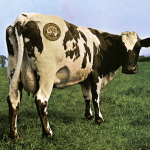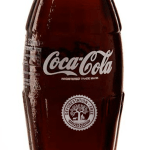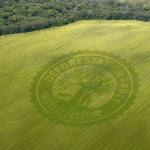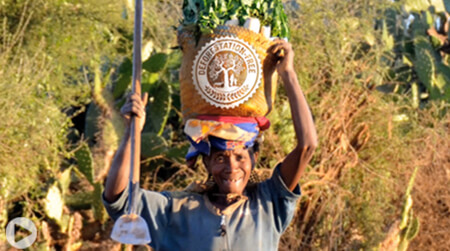Initiatives
ADP’s Deforestation-Free Awareness Campaign
AD Partners creates the first “Deforestation-Free” product seal as part of awareness campaign
Consumers are largely unaware that many of the products they purchase contribute to the destruction of rainforests. The shocking truth is that the production of beef, soy, palm oil and paper contribute enormously to the loss of over 36 million acres of rainforest every year. This amounts to an acre of forest lost every second of every day. In addition to the staggering harm to the world’s biodiversity, deforestation is estimated to contribute nearly 17% of all global greenhouse gas emissions – more than the entire transportation sector.
Overview
 Consumers are largely unaware that many of the products they purchase contribute to the destruction of rainforests. The shocking truth is that the production of beef, soy, palm oil and paper contribute enormously to the loss of over 36 million acres of rainforest every year. This amounts to an acre of forest lost every second of every day. In addition to the staggering harm to the world’s biodiversity, deforestation is estimated to contribute nearly 17% of all global greenhouse gas emissions – more than the entire transportation sector.
Consumers are largely unaware that many of the products they purchase contribute to the destruction of rainforests. The shocking truth is that the production of beef, soy, palm oil and paper contribute enormously to the loss of over 36 million acres of rainforest every year. This amounts to an acre of forest lost every second of every day. In addition to the staggering harm to the world’s biodiversity, deforestation is estimated to contribute nearly 17% of all global greenhouse gas emissions – more than the entire transportation sector.
The good news is that many corporate leaders responsible for a good portion of the world’s agriculturally–based commodities are beginning to recognize the importance of protecting forests. They understand that destroying irreplaceable forests in order to harvest cheap timber and create inexpensive farmland is an unsustainable agricultural model. For these corporations, their larger concern is that such short–term profit strategies will lead to resource shortages, and thus higher commodity prices. This is of particular concern as our planet’s population is estimated to approach 10 billion by the year 2050. Finally, CEOs now understand that protecting our natural resources is good for the planet and their bottom line. This is why these companies are making serious pledges that their supply chains eliminate deforestation and only include sustainably–produced agricultural sources.
In an unprecedented announcement during the annual climate change conference in 2010, the Consumer Goods Forum (CGF) pledged to mobilize their collective resources to help achieve zero net deforestation by 2020. The CGF is comprised of over 400 retailers, manufacturers, service providers and other stakeholders across 70 countries that have combined sales of $3 trillion. CGF members have, in effect, agreed to source only “deforestation-free” commodities.
At the Rio+20 Earth Summit in, AD Partners announced a campaign to support these and other sustainable efforts by raising consumer awareness about the link between certain commodities and deforestation. Our campaign will target products from key drivers of deforestation. We believe people want know if the items they buy – from hamburgers and cookies to cosmetics and detergent – come from agricultural products grown on land that used to be a lush, verdant tropical forest. Our Deforestation-Free seal is a sign to consumers that products have been manufactured sustainably, without destroying precious forestland.
While still in the concept stage, this program is for the moment a campaign to raise public awareness about the need for a product labeling system. Of course much more work needs to be done to set up the appropriate monitoring and verification systems that would legitimize the use of this Deforestation-Free seal.
Member companies of the CGF, such as Unilever, Coca Cola and Tesco, along with other manufacturers, are developing best practices as they work with their vendors to shift to sustainable supply chains, and are using their market power to implement new standards and work with their suppliers to conserve energy and natural resources. These new sustainability practices benefit bottom lines, tangibly reduce global resource depletion, and will help to ensure the production of goods and services that people will need far into the future.
 While market transformation will not happen overnight, conservation experts contend that if 100 key companies commit to sustainably sourcing their goods, it would result in saving nearly 25% of our planet’s natural resources. Once market leaders establish viable sustainable supply chains, it is likely other companies will follow, mainstreaming these practices and avoiding the resource depletion that today seems all but inevitable.
While market transformation will not happen overnight, conservation experts contend that if 100 key companies commit to sustainably sourcing their goods, it would result in saving nearly 25% of our planet’s natural resources. Once market leaders establish viable sustainable supply chains, it is likely other companies will follow, mainstreaming these practices and avoiding the resource depletion that today seems all but inevitable.
But these companies cannot do it alone. As consumers, we need to be aware of the environmental externalities of each purchase we make. We need to understand the huge contribution to the well being of our planet that a Deforestation-Free product offers, and we need to support this contribution each time we step into the grocery store. AD Partners’ Deforestation-Free seal will help to ensure that consumers can make informed decisions that move us all toward a future with a strong sustainable economy and a healthy environment.
back to top

